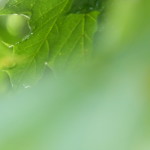Mari’s Blog
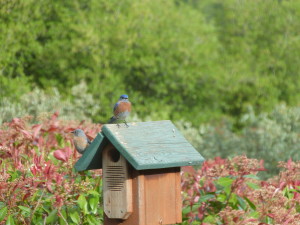
Astronauts and the creation story
I’m traveling to California tomorrow to visit with the people at Take Heart Publications who enable the sharing of A Course of Love in form and spirit. There is a spirit to ACOL that takes some getting used to. It’s an adventurous spirit. A spirit that says “the new is yet to be created.” I was reading Day 1 of The Dialogues this morning because there is an ACOL group that meets among the friends that are part of, or near to, Take Heart. What a kick it is to be able to join them as they happen to be about to share Day 1.
Part of my trip will be about the ACIM Conference that will take place next April. Part of it will be details that will be far less interesting. One aspect will be a review of how we’ve been proceeding thus far, and another envisioning where we’re going. In each detail, memory and idea, remembering that “the new is yet to be created” is essential. We are about the business of creation of the new. Maybe because I was thinking of the various forms this meeting with my publisher will take, I saw this passage in Day 1 about the astronaut newly. It goes like this:
Not accepting me would be like training to be an astronaut and, at the moment of take-off, refusing the requirement of the spacecraft as the way to reach outer space. This would be akin to non-acceptance of the way that has been given to bring your desire to fruition. The spacecraft could be seen as a response to your desire. So too can I.
This would be like saying, “If I am an astronaut, I can reach outer space without a space craft. I have been trained, I understand the truth about outer space, I believe in my abilities; but I do not accept the spacecraft as necessary. D:Day1.9-10
What this spoke of to me today is “the physical.” So often the physical gets forgotten. The physical and the actions of the physical. It gets forgotten that there are some things that enable the journey, or the manifestation, like there are some things that enable the publication of a book. Each of us want our spacecraft (of whatever manner), to take us where we want to go, and yet if you were to ponder a few situations, I’d bet you’d find times of wanting to disregard it too. Accepting the spacecraft requires us to be humble and to accept the reality of form. I hadn’t looked at it this way before, as this quote is actually a commentary on accepting Jesus. But today, I felt appreciation for Jesus using the metaphor of accepting what we need to reach the “outer” spaces, whether we’re simply sharing who we are (which isn’t always so simple), or whether we’re sharing a great work like A Course of Love with the world.
Another inspiring aspect of Day 1, that similarly fits together with the above and the new turn I’ve taken with it, is one of the many diversions that Jesus takes into the “creation story.” Here, Jesus says our return to paradise, to our true selves and our true home, is written within us. “It only needs to be lived to become real.” He speaks of the story of creation as an unbroken chain of events and says, “You are living history. You are living what will tomorrow be history. You are living creation. You are living what will tomorrow be the story of creation. A chain of events is merely another way of saying cause and effect. The chain of events of creation include, thus far, the movement of being into form and the movement of being beyond form. What will be realized through the secret of succession is the elevation of form.” (D:Day1.25-26)
Story, which I love, seems to go in and out of favor in the spiritual field. I love this view of story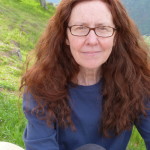 too, its link to cause and effect and to creation. I live the creation story, you live the creation story, but we each live it differently, and have our distinct parts to play in the story’s movement beyond what was—to what will be. This is a powerful story we’re living.
too, its link to cause and effect and to creation. I live the creation story, you live the creation story, but we each live it differently, and have our distinct parts to play in the story’s movement beyond what was—to what will be. This is a powerful story we’re living.
And so I gained my inspiration for the journey. I am living history. You and I are living what will tomorrow be history. Together, each of us, in our own ways, are filling in bits of the story, adding narrative, gassing up the vehicles, catching planes, dreaming our dreams into reality and going forth to create the new. This is the adventure of A Course of Love, an adventure in being who we are while still holding the potential for new exploration, and for new forms. Holding the tension of not knowing how it will be, and that what will be, while it is bigger than us individually or collectively, still calls to us and asks us to show up and do our part.
The pictures on this page are from my visit in 2014, at which time I signed the contract for the publication of the new combined volume of A Course of Love. What a lot has happened in less than two years! What a lot is still to come!

The gift, the edge, and the embrace
 You might think of yourself as a channel through which union with God is expressed and made real here and now. There is no other time. There is no “higher” self waiting to do what only you can do. There is no one else who knows what you know the way you know it or who can express the unknown in the way that you can express it. The unknown can only be made known through reception and expression. Call it what you will for what you call it matters not. Throw out all the words that express the unknown in ways that you would not, and find your own. Each way is needed. D.Day22.10
You might think of yourself as a channel through which union with God is expressed and made real here and now. There is no other time. There is no “higher” self waiting to do what only you can do. There is no one else who knows what you know the way you know it or who can express the unknown in the way that you can express it. The unknown can only be made known through reception and expression. Call it what you will for what you call it matters not. Throw out all the words that express the unknown in ways that you would not, and find your own. Each way is needed. D.Day22.10
The sky feels so high this morning. It’s 5:02. I awake at 4:30 and don’t feel it makes much sense to go back to bed. I get to the cabin in record time. The feel of immensity to the sky is daunting. I stand between house and cabin letting my eyes get used to the morning dark and having to turn my head completely skyward so that I can begin to see the wonder of the stars in the distance that they want to let me feel, even while I seek them out. And then, being as it is Sunday morning, there is the quiet. Five o’clock on Sunday morning quiet. It was the longest spell of true frog chirping quiet that I can remember.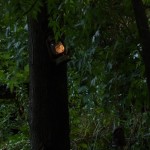
A little blast of heat and a gurgle of perking coffee get going in the cabin, and then the wonder of the ceasing of noise, held for a moment before the return of engines, intermittent but there. Going in and out again not long after, a deepening of the dark above, a lightening on the horizon, a sense of existing along the edge of the curve of the earth, the appearance and the feel of the curve.
I have this thought: If it’s meaningful to you, it will be meaningful to everybody.
And then I wondered, Is this true? My memory traveled inexplicably to a time 35 years ago when my husband was my boyfriend and I learned that he had majored in political science and astronomy. “Astronomy?” We were about to share our first Christmas and went to see a professor who had been, for years, giving a talk on the Star of Bethlehem. That feeling was there: the professor’s quest for meaning had given form to these yearly gatherings of people like Donny and I, willing to let the meaning he’d found wash over and inspire us.
I didn’t need to look so far back, but I love it that memory is quirky.
Yesterday I had the chance to do another segment in The Dialogue Series that I’ve been recording, if not producing, since the first of the year. What is The Dialogue Series? Until today I wouldn’t have thought of it as sharing what is meaningful, but in essence that’s what these are . . . these recorded conversations I’ve been having with companions on the way (or in other words friends who have been touched by A Course of Love). I am enthralled by what comes of sharing with another human being in one-on-one conversation. The first installment of The Dialogue Series will be up soon as the website of The Center for A Course of Love goes live. The segment that I recorded yesterday will be a while.
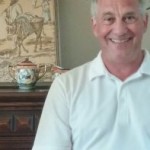 That segment was with Rod Chelberg, a physician friend and ACOL reader from Maine. He hadn’t given me much notice that he would be in town so there was hurried preparation for a Saturday afternoon dialogue. My friend Mary Love has been doing the recordings and videography but has been attempting, somewhat unsuccessfully, to pass it on to me. Her latest effort included buying me a tripod for my cell phone as an early Christmas gift! I might not have pulled her into this session but Rod’s interest and her own intersect. This interest (more like a gift or passion really) is broadly defined as “life after death,” yet the aspects of it that are most meaningful to Mary, take a slightly different form than Rod’s. I find these differences fascinating, and this is a major reason that these dialogues are so revealing. Each of our interests, gifts, and expressions of them are so varied and so valid! I also love the way the dialogues mimic the “way of knowing” I experienced when I received ACOL. I can’t remember what happened or hardly anything of what was said! We’d barely finished several hours of talking and filming when I needed to leave to take my mom to church. There was little I could have repeated a half hour later, although I was able to share broad strokes of hope and beauty with Mom, who is in a sense, staring down the coming of end of life, despite her life-long faith, with reluctance and some dread. Yet one of the ways Rod speaks of it is as being birthed into Heaven.
That segment was with Rod Chelberg, a physician friend and ACOL reader from Maine. He hadn’t given me much notice that he would be in town so there was hurried preparation for a Saturday afternoon dialogue. My friend Mary Love has been doing the recordings and videography but has been attempting, somewhat unsuccessfully, to pass it on to me. Her latest effort included buying me a tripod for my cell phone as an early Christmas gift! I might not have pulled her into this session but Rod’s interest and her own intersect. This interest (more like a gift or passion really) is broadly defined as “life after death,” yet the aspects of it that are most meaningful to Mary, take a slightly different form than Rod’s. I find these differences fascinating, and this is a major reason that these dialogues are so revealing. Each of our interests, gifts, and expressions of them are so varied and so valid! I also love the way the dialogues mimic the “way of knowing” I experienced when I received ACOL. I can’t remember what happened or hardly anything of what was said! We’d barely finished several hours of talking and filming when I needed to leave to take my mom to church. There was little I could have repeated a half hour later, although I was able to share broad strokes of hope and beauty with Mom, who is in a sense, staring down the coming of end of life, despite her life-long faith, with reluctance and some dread. Yet one of the ways Rod speaks of it is as being birthed into Heaven.
As a scientist, making the choice to express the wonders he has seen, particularly in giving birth to the new life, is not an easy one for Rod. I’ve become convinced that there is such a choice in store for each of us. To express what is meaningful to us makes us feel vulnerable. It feels like a risk. But it is the greatest gift any of us can give. It is that sense of existing along the edge of the curve of the earth, which is paradoxically both that edge . . . and the embrace.
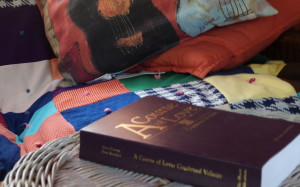
Staying “in life” with sharing and story
 If you can’t remove yourself from life, what choice have you but to join with it? Love it. Love yourself. Love yourself enough to accept yourself. Love will transform normal, ordinary, life into extraordinary life. Loving exactly who you are and where you are in every moment is what will cause the transformation that will end your desire to remove yourself from life. All those frustrations you currently feel have a purpose: To move you through them and beyond them—to acceptance. D:Day8.2
If you can’t remove yourself from life, what choice have you but to join with it? Love it. Love yourself. Love yourself enough to accept yourself. Love will transform normal, ordinary, life into extraordinary life. Loving exactly who you are and where you are in every moment is what will cause the transformation that will end your desire to remove yourself from life. All those frustrations you currently feel have a purpose: To move you through them and beyond them—to acceptance. D:Day8.2
I don’t know why, but I was thinking of the “Is that so” saying as I walked out to the cabin this morning. It goes about like this: The farmer’s horse ran away and the neighbors said, “That’s awful” and he said, “Is that so?” Then the horse came back with nine companions and the neighbors said, “Isn’t that wonderful.” The farmer said, “Is that so?” Then his son was riding one of the horses and was tossed and broke his leg. The awful / is that so repeat. Then war started and the army came to get his son and left him because of his broken leg. Same response.
But…nowhere do we hear that the farmer still tills his fields, or that as each thing happens he has to expend renewed thoughtfulness regarding how he’ll plow the field. We can intuit that he wouldn’t overthink it or fuel it with fearful thoughts of gloom or doom, punishment or reward. It IS an open attitude. “We’ll see” implies that he doesn’t worry about it. He carries on differently as things change; but he carries on. That’s the story. (The story that’s missing.) He still has to be a farmer or he wouldn’t be a wise man. He would starve.
So in the “Is that so” saying, the story is missing, the story of innovation. The way the farmer, even being fully accepting of “what happens,” changes his ways so that he can carry on. His choice might not lie in what to do, but in how to do it. I imagine him carrying on with equanimity. Nonjudgment helps with that. Yet for me, even without judgement, I’d say there’s a tone and timber to change, and times when change feels crucial, and times when change feels like smooth summer breezes moving life along through gentle incremental cycles. It’s like aging. We’re aging every day. We hardly even think about it. Then we get an illness, or lose our flexibility, or get to be somewhere around sixty years old and aging can come on like a storm. Suddenly there is a critical feeling in the air, a sense that the changes coming require some preparation. A mid-life career change can have that feel. A divorce. A move. A calling. A grandchild.
Unfortunately popular images of these various changes guide us all too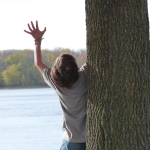 often to inaccurate perceptions. Grandparents, for instance, get portrayed with sentiment, (the doting grandparent) or as “spoilers” through the provision of material goods. This can rob grandparents of insight into the wisdom they bring, the sense of mentoring, of fostering interests and talents, introducing a child to life, and honing observational skills into a sixth sense that sees promise and potential and insecurities too. Being a grandparent refines love and expands it, and gifts us with wonder and a renewed capacity to be like the little children.
often to inaccurate perceptions. Grandparents, for instance, get portrayed with sentiment, (the doting grandparent) or as “spoilers” through the provision of material goods. This can rob grandparents of insight into the wisdom they bring, the sense of mentoring, of fostering interests and talents, introducing a child to life, and honing observational skills into a sixth sense that sees promise and potential and insecurities too. Being a grandparent refines love and expands it, and gifts us with wonder and a renewed capacity to be like the little children.
In that way, it is much like what ACOL can provide…only, maybe, it feels more natural! The way of ACOL is to return us to what is natural in us. But how do you know that the way you’ve been has been unnatural until you begin to change and feel the difference?
A Course of Love says we’re already prepared. That saying has made me cry. I do not always feel prepared for what life brings, or what I anticipate the future holds. But I have found that preparing feels less than natural these days, and therein lies the rub of such times.
However, I just read a wonderful book that was written by a woman I’ve come to know through ACOL’s Facebook group. I read this book cover to cover in two days. It’s the first time I’ve done that in a very long while. It had the right tone for me. It wasn’t teacherly. It was practical, personal, and spiritual, all at the same time. This book is Paula Payne Hardin’s What are you doing with the rest of your life?: Choices in midlife. It was published in 1992 and the book has stood up to the test of time. I devoured it. It arrived in the same package as the Brené Brown book I was awaiting, but browsing them both, I quickly chose Paula’s book.
They are each, in a sense, about how we deal with life challenges. Often, I have found this consideration an undervalued facet of spirituality. It certainly has been for me. I want to disregard the practical every time, and so facing the practical can feel like a force.
The questions of life aren’t immaterial to the new life ACOL promises. They’re part and parcel of it. We’re not to remove ourselves from life in any way. And if we accept this, we stand in the thick of where we are, feeling as we feel—whether it is prepared or unprepared. Many of us probably know a person or two who took their spirituality to mean they did not have to be prepared for “regular” life. Some sailed off into the sunset of abundance, others had the bottoms fall out of their lives, still others experienced a bit of both. I’d probably count myself in that last category and even say that through it, I found the value in touching bottom. But that doesn’t mean I want to continue to do so. Life’s wisdom, I have found, is not immaterial. There is a wholeness to life and spirituality inherent in the idea of the elevated Self of form.
I love it when I find ACOL’s wisdom deeply imbedded in a work like Paula’s…even while it’s a work from twenty years ago. It gives it that aura of perennial wisdom.
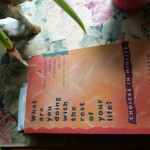 Here’s a quote from the book that shares what I mean: “Relationship is the great teacher of the heart. It comes in many forms and holds up many mirrors as we learn who we are. In discovering our true Self, separate and whole, we begin to exchange dependence for independence, and learn to create family relationship in new and healthier ways.” It was perfect for me because one of my transitions is adjusting to new relationships with my family. Another wonder was her chapter on Endings and Beginnings. My friend Mary was over earlier today, and we talked of our mothers’ needs and her mom’s impending move to assisted living. We both teared up as she used these same words. “It is a time of endings and beginnings.”
Here’s a quote from the book that shares what I mean: “Relationship is the great teacher of the heart. It comes in many forms and holds up many mirrors as we learn who we are. In discovering our true Self, separate and whole, we begin to exchange dependence for independence, and learn to create family relationship in new and healthier ways.” It was perfect for me because one of my transitions is adjusting to new relationships with my family. Another wonder was her chapter on Endings and Beginnings. My friend Mary was over earlier today, and we talked of our mothers’ needs and her mom’s impending move to assisted living. We both teared up as she used these same words. “It is a time of endings and beginnings.”
Also in this chapter Paula quotes psychologist Virgina Satir and talks of the value of chaos. “In chaos you can no longer go back to what was because there has been a death to the former order, nor do you know where you are going because the new life possibilities are still hidden.” In chaos, we find the dark void and the pregnant feeling of new opportunities. Paula shares a journal entry here, and she introduces it in this way: “You can negotiate the process more easily when you know that there is meaning and purpose in what is happening to you.”
This kind of sharing is exactly what I feel ACOL encourages us toward. We discover, through our shared experiences, that we are not alone, and that there is “meaning and purpose” in what is happening. I am thankful to Paula, and to all who share their life experience!

The freedom to be a badass . . . or your true Self
 I asked myself the other day if the questions I’ve been exploring about my life couldn’t be more pleasurable than they’ve been. Yet as I thought of sharing this feeling, I realized it relates to my feelings of being in transition, and that I’m always writing of transition! I need to get off this subject, is what I thought. But then, for the first time, I realized, What the heck. We are all in transition from the minute we walk through the door of this course. We are in transition from fear to love, from separation to union, from intolerance to acceptance, from learning to no longer learning, from old life to new, from one life situation to another and on and on. When we add details it can look different for each of us, but without the details, it’s simply the way it is.
I asked myself the other day if the questions I’ve been exploring about my life couldn’t be more pleasurable than they’ve been. Yet as I thought of sharing this feeling, I realized it relates to my feelings of being in transition, and that I’m always writing of transition! I need to get off this subject, is what I thought. But then, for the first time, I realized, What the heck. We are all in transition from the minute we walk through the door of this course. We are in transition from fear to love, from separation to union, from intolerance to acceptance, from learning to no longer learning, from old life to new, from one life situation to another and on and on. When we add details it can look different for each of us, but without the details, it’s simply the way it is.
I’d just ordered and read a bit of what was available on-line of Brené Brown’s new book, “Rising Strong” where she coins a new word: badassery. She explains it this way: “When I see someone fall down, get back up and say, “Damn, that really hurt, but this is important to me and I’m going in again” –my gut reaction is, “What a badass.”” Then she says, “There are too many people today who, instead of feeling hurt are acting out their hurt; who instead of acknowledging pain, they’re inflicting pain on others. Rather than risking feeling disappointed, they’re choosing to live disappointed.” She says, “Perfectionism is about the furthest thing in the world from badassery.”
I found myself wanting to be a badass. A wholehearted badass. Brene’s been talking about being wholehearted for almost as long as I have.
Since I’m still waiting for my copy of “Rising Strong” to arrive, this is as far as I’ve read. I’m sure she talks about what happens when we’re feeling in a dark place because that’s her impetus for writing the book. Not the heroes glorious hour of success, but what gets the heroine up out of the place of what I’ve been calling “not knowing what to do” . . . to “knowing what to do.” These are my words, not Brené’s. The times of “not knowing what to do” that I encounter are the toughest times for me. I do not rush. I wait it out. But then I do get to these points of “enough is enough.”
I was talking to one of my friends and mentors, Kathy Scott Perry, the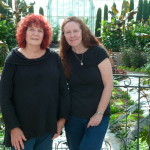 other day. She’s been running conferences for decades and invited my participation in the one subtitled, “A gathering of the scribes,” a few years ago. She told me that scribes often seem not to know what to do when they’re done scribing! I could have kissed her for saying that.
other day. She’s been running conferences for decades and invited my participation in the one subtitled, “A gathering of the scribes,” a few years ago. She told me that scribes often seem not to know what to do when they’re done scribing! I could have kissed her for saying that.
You’d think it would be the opposite, wouldn’t you? That there’d be some kind of “this is what you do next” instruction? I did get guidance: “Be a companion to those willing to leave hell behind.” I totally accept being a companion—it’s perfect for me. I totally accept that it makes little sense to try to companion anyone unwilling. And so, okay, there’s guidance. But the need to put whatever guidance we get together into a whole that actually guides our lives is a tad more complex. Because while I’m doing whatever I’m guided to do, I still have to consider that the strongest call of this Course: “being who we are,” translates for me, (as for you) into being who “I” am.
So my questions to myself from within these constant times of transition are ones that aren’t only “what’s the way forward” but what’s the way to move forward soulfully, wholeheartedly, with authenticity (or badassery) and without walking away or walking over anyone else?
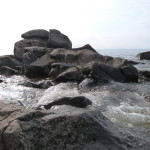 These are among the greatest dilemmas of life, and each of us meet these “not knowing what to do or how to move forward” challenges—if not constantly, occasionally. I started wondering where this is addressed adequately in A Course of Love, and landed on Chapter 17 of The Dialogues, the one in which we are told we are still becoming, but that we stand at the threshold. Reviewing this chapter let me see that I could reframe my language of transition into the language of desire and response:
These are among the greatest dilemmas of life, and each of us meet these “not knowing what to do or how to move forward” challenges—if not constantly, occasionally. I started wondering where this is addressed adequately in A Course of Love, and landed on Chapter 17 of The Dialogues, the one in which we are told we are still becoming, but that we stand at the threshold. Reviewing this chapter let me see that I could reframe my language of transition into the language of desire and response:
“Desire asks for a response. From where is this response sought? You now must understand the fullness of the well of your heart, the interrelationship of desire and fulfillment.” (D:17.19) The interrelationship of desire and fulfillment. I love that! To me it is like hearing, The strength of your desire is the fuel for your movement. 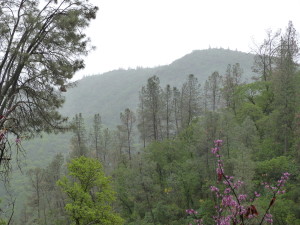 Your answers will come from your own heart in response to your desire.
Your answers will come from your own heart in response to your desire.
Next we’re told that we will spend forty days and forty nights on the mountain, “fasting from want, becoming aware of desire, responding to desire. This is the final stage of becoming.”
Responding to desire. Yearning for that time of such a response rising up! Yes! This is a description of the feeling of transition.
I long to respond with true expression. I greatly desire to enjoy the freedom of the new. And I especially yearn for the freedom of being my true Self. And I stand in desire and fulfillment, to which part of me says, Whatever that means! And to which another part of me says . . . How true!
How about you?
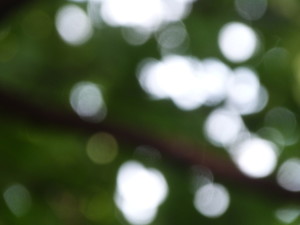
Memory
 How can memory so deceive the eyes, and yet fail to deceive the heart? C:8.28
How can memory so deceive the eyes, and yet fail to deceive the heart? C:8.28
Our place in the pattern of God’s creation “is not a place of physical form but a place of holiness, an integral place in the pattern that is oneness with God. It is a place you have never left but that you long for, believing that you know it not. Your life here is much like a search for your story. Where will this chapter lead? What will the end be like? Was one event a mistake and another a blessing in disguise? You seek to know your story’s table of contents, or at least a brief outline. Where does your life fit in the larger picture? And yet, you realize that—like reading a story—when the end is reached and all is known, the story is over except in memory and reflection and perhaps in speculation. C:26.24
A morning filled with rain, thunder and lightning, it required me to put on my 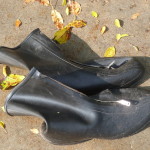 galoshes for the trek to the cabin, a pair I inherited from my father-in-law Ed. I love zipping my feet, complete with socks and shoes, into their black rubber.
galoshes for the trek to the cabin, a pair I inherited from my father-in-law Ed. I love zipping my feet, complete with socks and shoes, into their black rubber.
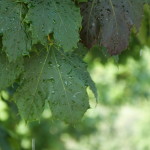 A few hours later, after the rain left, and the sun came out, I went walking, swinging my arms with the joy of early morning and the shower that kept pelting me like grace as I moved beneath the dear trees of my neighborhood. I will likely move in the next year, and I feel that each day I am creating and preserving memories.
A few hours later, after the rain left, and the sun came out, I went walking, swinging my arms with the joy of early morning and the shower that kept pelting me like grace as I moved beneath the dear trees of my neighborhood. I will likely move in the next year, and I feel that each day I am creating and preserving memories.
I’ve also been reviewing the paper trail of my life. Along the way I find all kinds of writings, some about my experience of this Course, like the one I shared in last week’s post. I have sought “the actual” to compliment memory. Yet at times I feel that my memory is more accurate than what I’ve found.
Yes, the details are nice. The dates, the historical facts. They may even be necessary. Yet how I feel—looking back from today—and how I felt then, are so often different. Have you ever felt this? Have you felt the ability of memory to transform the past? Memories of childhood? Memories of the breakup of a love relationship? Memories of a loved one who died? Memories even, of who you once were, what you believed, who and what you had faith in?
“Memory” is an incredibly rich theme within A Course of Love:
You can look back on your life and see its form. You could write an autobiography describing every experience you encountered between your earliest memory and the present moment and it would say nothing about you if it related the experiences only as physical events. Your experiences may, in their totality, be called your life, but they cannot be called you. You stand apart. And yet in your choice of, and response to your experiences were you revealed, because, in this way only, were you a creator. D:Day36.3
There are so many ways memory is spoken of. It begins in the Course, where there are multiple references to our memory of God’s creation:
It is because you remember love as that which kept you safe, that which kept you happy, that which bound all those you love to you, that you attempt to use love here. This is a real memory of creation that you have distorted. Your faulty memory has caused you to believe love can be used to keep you safe, to make you happy and bind to you those you choose to love. This is not the case, for love cannot be used. C:9.3
The same is true of our memory of relationship. We have remembered “that all things exist in relationship, and that all things happen in relationship.” (C9.4) With this too, we seek to make use of this memory, not realizing that relationship cannot be used.
Memory is spoken of more broadly as well: “The memories of your heart are the strongest and purest that exist.” (C9.12) Their remembrance will help to still our minds and reveal the rest.
There is even an experiment in observing the body that leads to an unorthodox conclusion. After participating, “You will remember the urge to laugh gently at yourself and the expanded vision as well. You will remember that for a moment your body did not seem to be a boundary that kept you contained within its limitations. Then you will remember that this is but a Course in remembering and that memory is the language of the heart.” C:10.31
In The Treatises, especially A Treatise on the Art of Thought, memory is linked to mindfulness and our ability to live what we have learned:
A Course of Love has provided you with what you need to know, which is the function of all coursework. This does not mean that you have acquired the ability to live what you have learned, only that you are ready to. The very word “remember,” as well as the concept of memory, implies mindfulness and the ability to reproduce or recall both what has been learned and what has been previously experienced. This reproducing and recollecting are acts of creation. They do not bring back a reality that once was but transform that reality into a present moment experience. It is in the present-moment experience memory provides that truth rather than illusion can now be experienced and learned from. It is in the present-moment experience that you will receive the blessing of being able to respond differently to love. T1:1.4
I love this one and the idea that we are not called to reinterpret memory but to respond newly:
[T]he first opportunities for you to learn the art of thought will be provided through what we have called the re-experiencing of memory. These are opportunities to re-experience the lessons your life has brought you. You will experience the same lessons in the same way, rather than in a new way, if you meet these experiences again with the attitude of interpreting them rather than responding to them. They do not require interpretation but response. Response was what was required in the first place and your inability to respond need not be repeated. You are being revisited with these lessons expressly for the purpose of not repeating your former reaction or interpretation of them. You are being revisited with these lessons so that you may apply to them the art of thought rather than the thinking of the ego-mind. The art of thought will reveal the truth to you. T1:4.21
Most poignantly perhaps, is that I have found that memories truly do have the ability to transform and so to be transformative.
I could go on and on, but I’ll conclude as the Dialogues conclude, recognizing once again, how we travel through the whole gamut of the human . . . to the divine.
Everyone carries the memory of I Am.
Day 39.34:
What memory of I Am will you carry with you now that you know that I Am is who I am and who you are? What memory has this Course and this Dialogue returned to you? What memory is without attributes because it is who I Am and not a projection? Only love. What memory is not a memory, but your identity? Only love.


